The new office is also the place where Mr. Nguyen Cong Bang (right), a judicial officer of the People's Committee of Muong Ly commune, sleeps.
Implementing the 2-level local government model, the apparatus in mountainous communes after restructuring is lacking many positions. Particularly in Muong Ly commune, one of the particularly difficult communes in the province, the shortage of cadres has become a "difficult problem". According to the Party Secretary of the commune Pham Van Son, after restructuring the apparatus, the commune lacked many personnel in both the Party Committee and the government. Faced with this reality, the Provincial People's Committee promptly mobilized 11 additional cadres for the commune, including 5 cadres in the Party and 6 cadres in the government. However, up to now, the commune still has 8 vacant positions, including important positions such as accounting, construction, information technology... "Since the operation of the 2-level local government, there were times when an official had to take on many tasks, from professional to administrative work. Many comrades from the lowlands had to both get used to the new work and adapt to the living conditions and food in the highlands. Although there were many difficulties, everyone was determined to stay and complete their tasks," Mr. Son shared.
To support the mobilized staff, the Muong Ly Commune People's Committee has renovated and refurbished part of the cultural center and offices, using them as temporary accommodation. The iron beds placed close together in the small room have become a place to eat and rest for the staff away from home. The shared meals have become warmer since then. According to Mr. Son, the commune is planning to invest in building a prefabricated public housing complex consisting of 16 rooms to create conditions for staff to work with peace of mind for a long time.
In a small room on the second floor of the commune People's Committee headquarters, Mr. Dao Duy Tuyen (born in 1980) is busy adjusting the transferred documents. He was formerly an economic officer of Hoang Phu commune (former Hoang Hoa district), now in charge of land administration in Muong Ly commune. "On the first day of receiving the decision to work in Muong Ly, I and my family members were very worried. The road was long, and living conditions in the mountainous area were still lacking. But when I arrived, saw the people, saw the necessity of the work, I told myself that I had to try harder to complete the task," Mr. Tuyen shared.
What Mr. Tuyen is most concerned about is the difference in language and culture. The Mong people make up the majority in Muong Ly, and in daily communication, they can only understand each other when there is an interpreter. However, for him, this difficulty is not a barrier, but a motivation to get closer to the people. In the near future, he is determined to learn more about the culture and basic Mong language to be able to communicate with the people. "When people see the enthusiasm of the officials, who come to their places to guide and help with paperwork, they gradually trust and share more. The most valuable thing here is affection," Mr. Tuyen shared.
Many other officials also shared the same sentiment when leaving the lowlands to go upland. Mr. Nguyen Cong Bang, a judicial officer of Muong Ly commune, formerly an official of Ham Rong ward, shared: “When I first received the decision, I was really worried. From the city to here is more than 200km, and from National Highway 15C to the commune, there are no passenger buses, so I have to take a motorbike taxi on the mountain road for more than 20km. When I first came, my family, relatives, and I were also worried. But then, with the encouragement of the leaders, the sharing of colleagues and people, I was determined to stick with it.”
In the early days of work, the cadres from the lowlands were not yet familiar with the pace of life, but with a sense of responsibility, they gradually got into the rhythm of the work. Some were in charge of land administration and construction, some were in charge of finance, and others monitored socio-economic development programs. Each file that was quickly resolved, each procedure that was completed on time, was an effort to overcome difficulties. In a difficult land, not only was there a shortage of cadres, but the facilities were also limited. Every rainy and flood season, roads were cut off, and the work piled up even more. But for the cadres here, it was a challenge to train their will. They considered completing their tasks well to be the most practical way to contribute to the development of the locality.
In a conversation with us, Party Secretary Pham Van Son emphasized: “The locality highly appreciates the efforts of the cadres who were transferred from the lowlands. Their spirit of overcoming difficulties and dedication will play an important role in helping Muong Ly commune operate a stable two-level local government apparatus and effectively implement programs and projects. Thanks to that, the people's lives have changed significantly.”
Mr. Son also believes that personnel work is the “key” to solving difficulties in mountainous communes. When the apparatus is strengthened, with more young, professional human resources, it will help the locality be more proactive in management, operation, and gradually develop the economy, culture and society . “We believe that with the companionship and sharing of the strengthened staff, Muong Ly will gradually overcome difficulties, gradually exploiting its potential for sustainable development,” Mr. Son confidently said.
In difficult lands, cadres from the lowlands go to the highlands not only to complete their assigned tasks, but also to sow more faith and light up more hope for a changing future for their villages. They have overcome everyday worries, chosen to stay in the remote border areas, to contribute their small efforts to the development of their second homeland.
Article and photos: Dinh Giang
Source: https://baothanhhoa.vn/no-luc-hoan-thanh-nhiem-vu-o-vung-kho-260816.htm



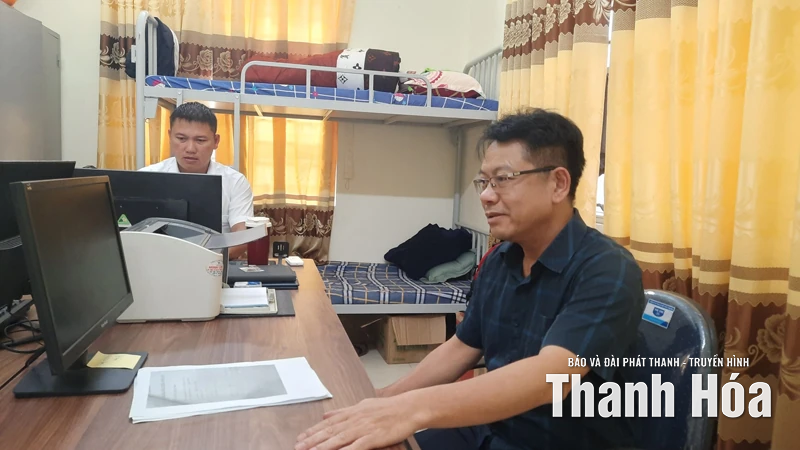

![[Photo] General Secretary To Lam chaired the Politburo's working session with the Standing Committees of Party Committees of Central Party agencies.](https://vphoto.vietnam.vn/thumb/1200x675/vietnam/resource/IMAGE/2025/9/9/8343386e1e8f43c6a3c0543da7744901)

![[Photo] Cambodia's Techo International Airport Officially Opens](https://vphoto.vietnam.vn/thumb/1200x675/vietnam/resource/IMAGE/2025/9/9/330836bb28ad4ee4bdd512cc1a2d0849)








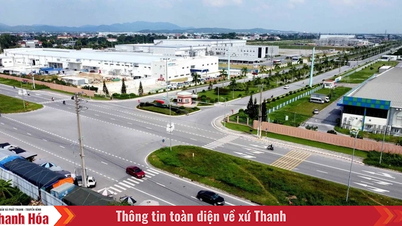
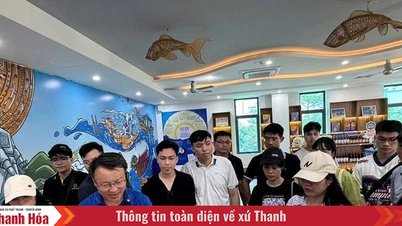


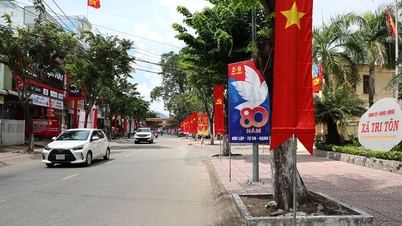
















![[Photo] Politburo works with the Standing Committees of Vinh Long and Thai Nguyen Provincial Party Committees](https://vphoto.vietnam.vn/thumb/1200x675/vietnam/resource/IMAGE/2025/9/8/4f046c454726499e830b662497ea1893)






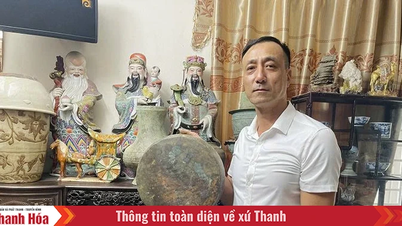


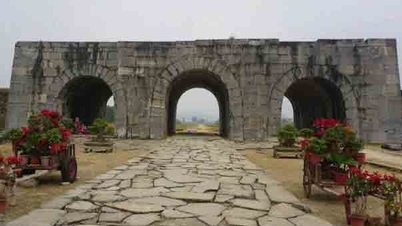
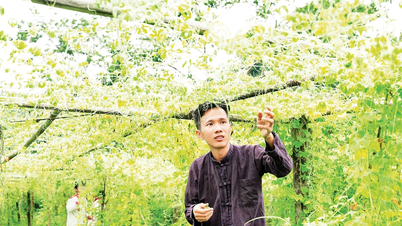






































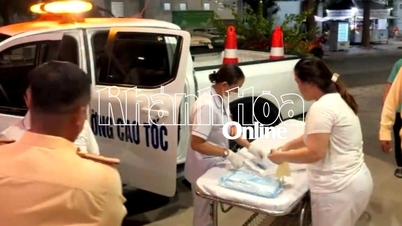







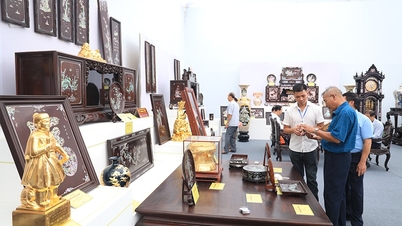








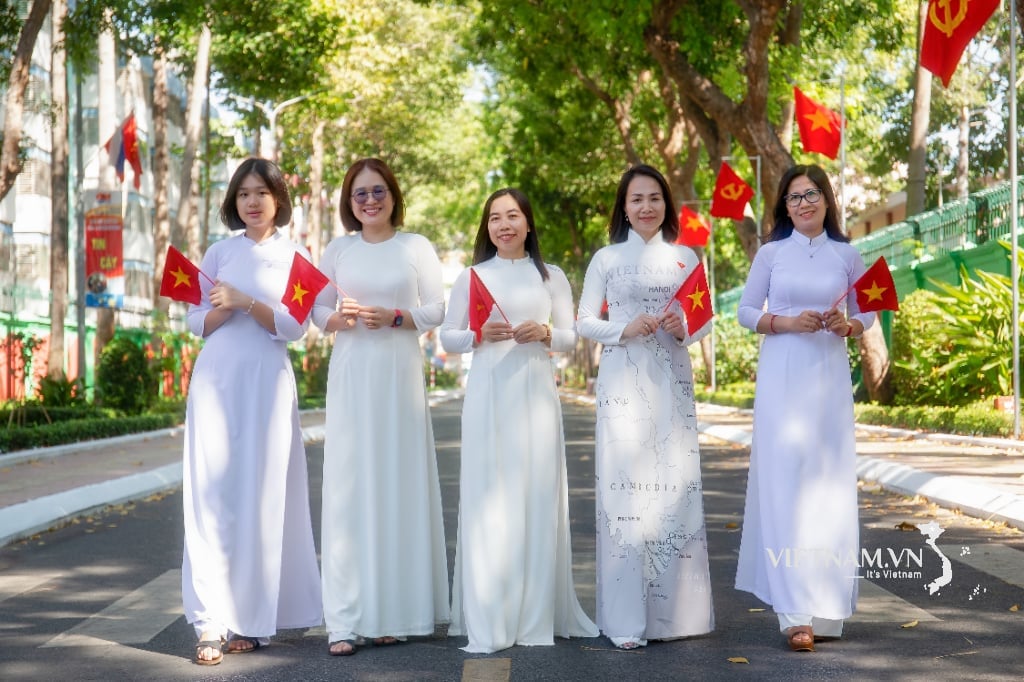

Comment (0)